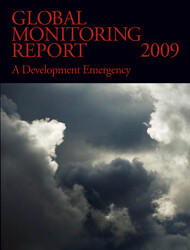
Guinea: Technical Assistance Report-Public-Private Partnership (PPP) Institutional and Fiscal Risks Management
Guinea: Technical Assistance Report-Public-Private Partnership (PPP) Institutional and Fiscal Risks Management
READ MORE...
Volume/Issue:
Volume 2024
Issue 041
Publication date:
ISBN:
Add to Cart by clicking price of the language and format you'd like to purchase
Available Languages and Formats
Topics covered in this book
This title contains information about the following subjects.
Click on a subject if you would like to see other titles with the same subjects.
Money and Monetary Policy , International - Economics , Guinea , Fiscal risk , PPP , public investment management , Budget cycle , public financial management
Summary
[This report is only available in French] This technical report discusses the main bottlenecks that have hampered the effectiveness of Guinea’s PPP governance framework and the management of PPP-related fiscal risks. The legal and institutional framework for PPP in Guinea appears to be strong, but its implementation is not yet effective. The institutions involved in PPP management are gradually stepping-up their staff and capacity. The PPP unit (UPPP) has developed several standard documents (forms an templates) by to assist contracting authorities in complying with legal and regulatory procedures for PPP projects. The report elaborates on the factors that prevent line ministries from completing feasibility studies, which is essential to ensure project efficiency and value for money. While the Guinean authorities appear to have fallen into the fiscal illusion of free infrastructure through PPPs, the report underlines the need to consider the fiscal costs and contingent liabilities generated by PPPs, as part of the fiscal risk management framework and the budget cycle more generally. It highlights the massive recourse to unsolicited proposals for PPPs which are often poorly aligned with government priorities and suggested, in line with good practices, to limit the use of such proposals and favor government-led calls tenders. On these grounds, this report makes nine high-priority recommendations that could improve PPP management and the associated fiscal risk in Guinea.
Copyright © 2010 - 2026
Powered by:
AIDC



